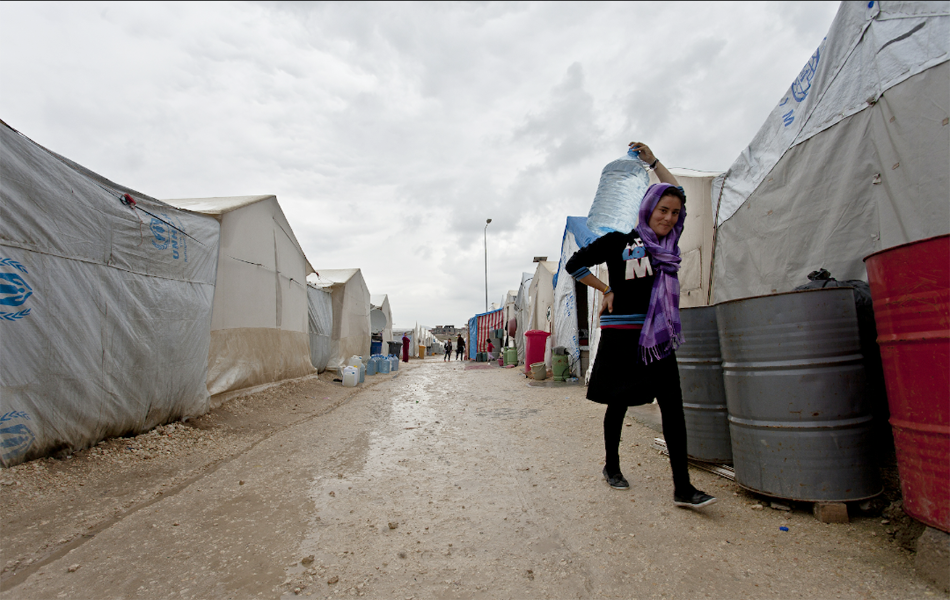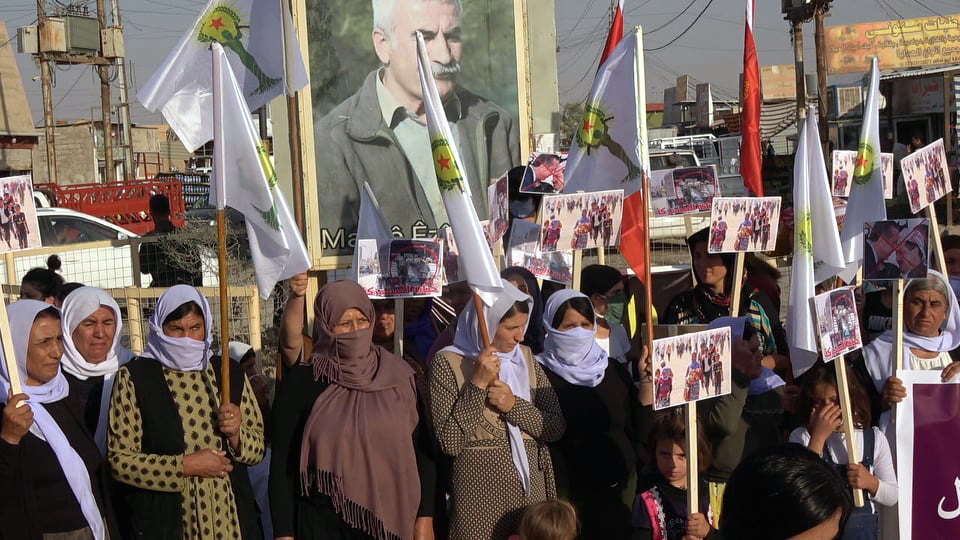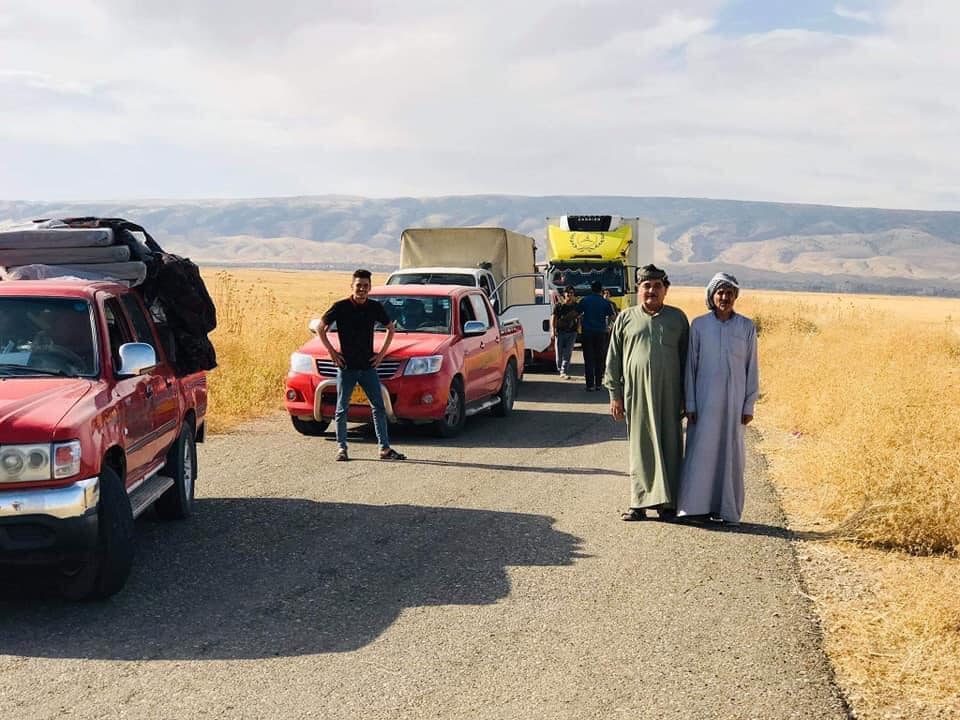Hundreds of families returned to Shingal seek permission to retun to IDP camps in Duhok due to instability and hard living conditions.
Applications for retunrning to camps soared up due to late threats by Turkish president Recep Tayyip Erdogan to attack Shingal at any time in pursuit of groups affiliated to Kurdistan Workers’ Party PKK based in the region.
Turkey may conduct a joint counterterrorism operation with Iraq “to clear PKK terrorists out of the Sinjar region,” Erdogan told media on January 22 but no date determined. Turkey offered military assistance to Baghdad and Kurdistan to limit PKK reign.
Akram Mishko Khidir who left IDP camp and returned to Shingal six months ago said after Turiksh threats he heard about in the news and social media, he approached Duhok Province authorities to get permission to return to IDP camp there.
“We live in a terrible condition and afraid of war if Tureky attacks Shingal and displace us again,” Khidir told KirkukNow.
“We live in a terrible condition and afraid of war if Tureky attacks Shingal and displace us again,” Khidir told KirkukNow.
As the returnes optionally returned home, they face difficulties to join the camps the Iraqi government is planning to shut forever.
According to statistics by Duhok office of Iraqi ministry of migration and the displaced, 100 applications asked to return to camps. KRG ministry of interior has received more than 200 requests.

A camp in Duhok for Ninveh IDPs. Photo: KirkukNow
“Those 200 people submitted request to return after Turkish threats… It’s up to the KRG ministry of interior to decide as they supervise the camps,” Askandar Mohammed Amin, director of Iraqi migration and displaced office in Duhok told KirkukNow.
“They have decided voluntarily to return home so their files are closed and will receive no any monthly assitance as in the past unless they are directly threatened by a party to leave,” Amin added.
“They have decided voluntarily to return home so their files are closed and will receive no any monthly assitance as in the past unless they are directly threatened by a party to leave,” Amin added.
Shingal is in a ciritcal situation due to disagreement between the militant groups and also Baghdad-Erbil disputes.
Islamic State militants ISIS took control of Shingal and one thrid of Iraqi territories in 2014 and ruled the region for three years. Thousands of people were killed and many others were abducted. Women and children were slaved and sent to ISIS controlled region in Syria.
Iraqi troops regained control in 2017 with support from pro-PKK militants in 2017. They are mainly local Ezidis whom joined these troops to defend their region left armless in the face of Deash atrocities.
Iraqi government and the KRG agreed to appoint a new mayor and provide security in Shingal but the “Shingal agreement” is not effective yet. The agreement insists that other militant groups to leave Shingal particularly pro-PKK groups as they were not given any security role. Some locals demonstrated the agreement saying they were not consulted or involved in decision making.

Demonstration by Ezidi women denouncing the federal-regional government agreement in Shingal in October 2020. Photo: KirkukNow
Due to the security gap, Turkish jets bombed Shingal more than once in the last two years.
The concerned families are still waiting for positive reposnce from Kurdistan authorities.
Karwan Zaki, media manager of joint coordination center of crisis in Kurdistan, said they have received 200 requests of Shingal families due to instability yet “we have not decided yet as there are consulting meetings with the organizations and concerned authorities.”
More than 200,000 Ezidis are living in Duhok camps reluctant to return to home for lack of security and proper administrative and public services.
Khidir has determined to leave his village Kohbil in Shingal for security concerns. “In case they refuse to receive us in the camps, I will go to Duhok and live outside the camps because I do not want to endanger my family life.”





